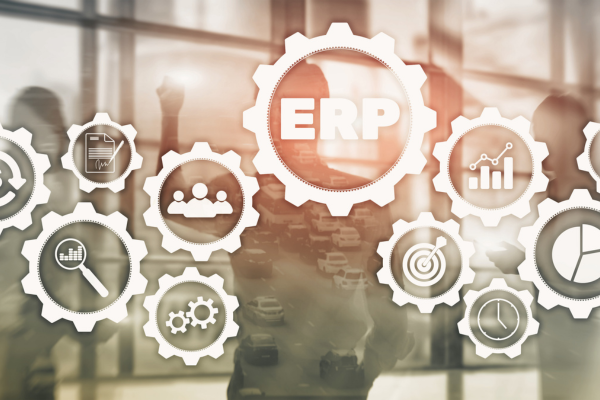Trusted ERP Solutions Provider To Small, Medium and Large Enterprises
Ultimate Guide to Different Types of IT Support
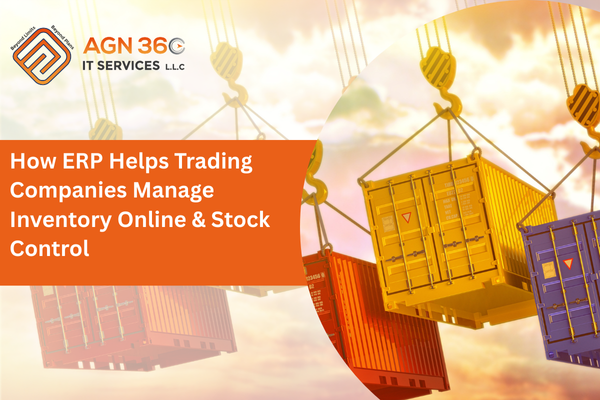
How ERP Helps Trading Companies Manage Inventory Online & Stock Control

I hope you find this blog post insightful. If you’d like our team to handle technology in your business and bring the best ROI, click here.
Inventory accuracy and stock visibility are essential for trading and manufacturing companies. Enterprise Resource Planning (ERP) systems for trading companies enable real-time inventory control and automated stock tracking, helping businesses prevent stockouts, reduce holding costs, and improve order fulfillment rates. It also allows businesses to access multiple locations, warehouses, and offices from the same software. Read more about Manufacturing ERP Software
What is Stock Control or Inventory Management?
Inventory management is the method businesses use to monitor and control the products they buy, store, and sell. In trading companies, this is one of the most important tasks. It helps businesses know how many products they have, where they are stored, and when new stock should be ordered. Without a proper system, businesses can easily lose track of items, overstock their warehouses, or disappoint customers by running out of popular products.
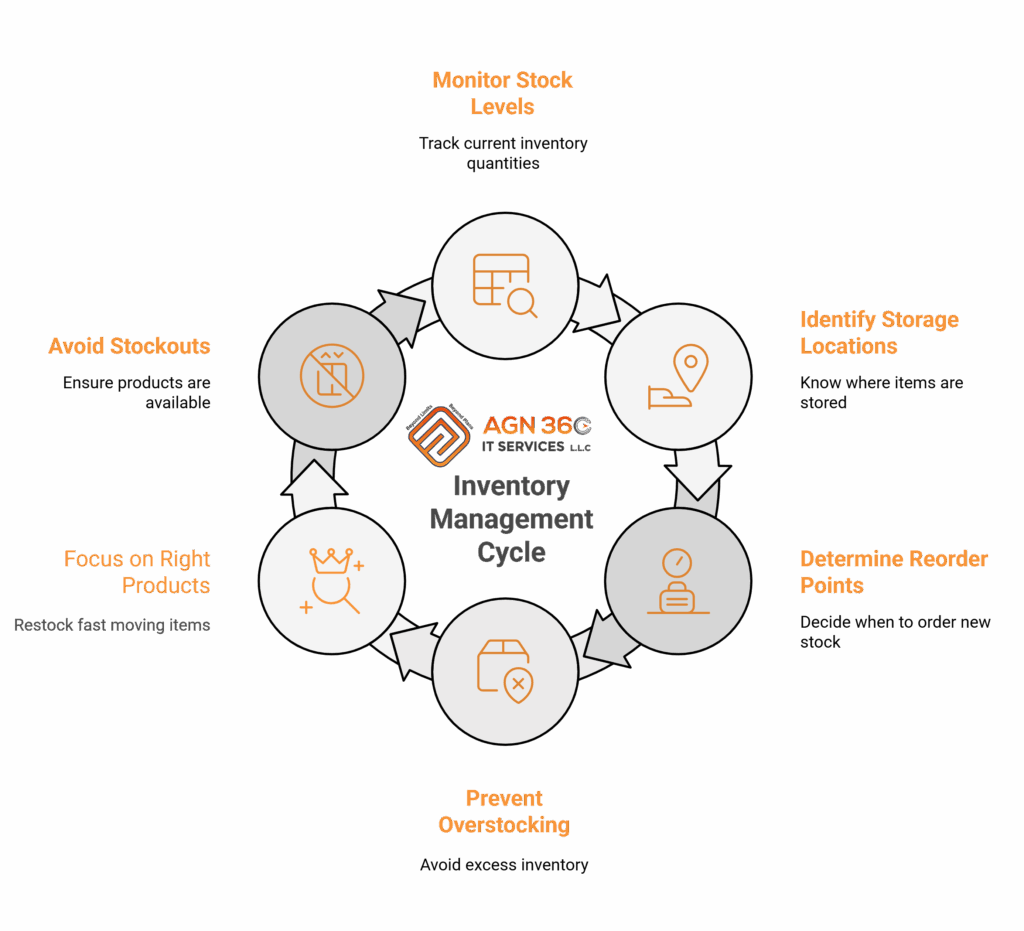
A simple example would be a business dealing in electronics. If it doesn’t track how many mobile phones or laptops it has, it might order more than necessary or miss out on selling when demand is high. Managing inventory properly ensures that:
Products are available when needed
Provides warehousing solutions
Warehouses don’t get overfilled with unsold stock
Money is not wasted on unnecessary items
Customers don’t face delays or cancellations
Effective stock control management involves
Tracking items from the moment they arrive until they are sold
Keeping records of stock levels and product movements
Regularly checking what’s available
Making informed decisions based on current stock data
By applying these practices, trading companies can avoid shortages, reduce storage costs, and improve customer service.
Why ERP Software is Used by Trading Companies to Control Inventory Management?
Enterprise Resource Planning (ERP) software is a tool that combines several business processes into one organized system. It makes managing stock easier, faster, and more reliable by replacing traditional methods like paper records and spreadsheets, making stock control easier.
How does ERP software improve inventory management and stock management?
1. Real-Time Updates ERP software provides real-time information about stock levels, sales, and incoming orders. This allows managers to make better, quicker decisions without waiting for manual stock checks. Knowing what’s available, what’s selling fast, and what needs restocking helps avoid running out of stock or over-ordering.
2. Automatic Notifications When stock runs low or reaches a critical level, ERP systems send automatic alerts related to stock control. This prevents situations where popular products go out of stock. The system notifies when it’s time to reorder or when stock is moving too slowly.
3. Centralized Data Instead of having different records for different departments, ERP software keeps everything in one place. From stock details to financial records and customer orders, it connects every part of the business, reducing mistakes and confusion.
4. Accurate Reports With accurate data collected automatically, businesses can get detailed reports about their inventory status. This includes stock movement trends, slow-moving products, and stock valuation. These reports help in making smart business decisions.
5. Better Decision-Making When managers have all this information, it becomes easier to plan purchases, organize stock, and manage sales. ERP software helps reduce costs by controlling unnecessary purchases and avoiding overstocking.
Using ERP software helps companies manage inventory online, improving their speed, accuracy, and decision-making ability.
Key ERP Features for Inventory Control
In a fast-moving trading business, inventory tracking is essential. Traditional stock management methods like handwritten logs or spreadsheet records often lead to mistakes, delays, and stock misplacement. This is where smart inventory tracking using ERP systems makes a difference.
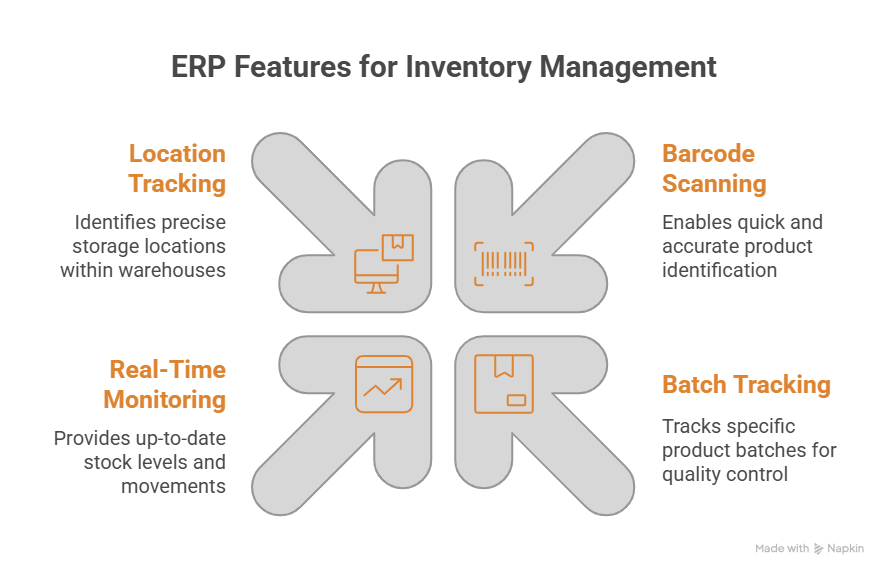
Barcode and QR Code Scanning: Many ERP systems include barcode or QR code scanning options, allowing easy tracking of products at every stage — from receiving at the warehouse to delivery to the customer.
Batch Tracking or Serial Number Tracking: For products that require specific tracking (like electronics, pharmaceuticals, or food products), ERP software tracks individual batch numbers or serial numbers. This helps in tracking expired, defective, or recalled products easily.
Real-Time Stock Monitoring: As soon as stock moves in or out, the ERP system updates the records. This avoids counting errors and keeps the business ready with up-to-date numbers.
Location-Based Tracking: ERP systems provides warehousing solutions where companies can track where items are stored in their warehouses. It records shelf numbers, sections, or warehouse locations to help employees find products quickly.
Benefits of an Online Inventory Tracking System
Reduces product losses and theft
Helps in better planning/restocking/stock control
Increase understanding of fast-moving items
Increases order processing speed
Helps track product history
Improves customer satisfaction by avoiding out-of-stock situations
Optimizes space by organizing stock properly using the warehousing process
These features make trading companies more organized and help them handle large amounts of stock smoothly and efficiently.
Choosing the Right ERP for Your Trading Business
The Different Types of ERP Software to Improve Inventory Management
There isn’t just one type of ERP software. Different trading companies have different needs, and ERP solutions are designed to fit these varied requirements.
1. On-Premise ERP
This software is installed on the company’s own computers and servers. It offers complete control over data and security but requires regular maintenance, updates, and hardware investment.
Advantages:
Full control over data
Customizable features
Better security (for sensitive data)
2. Cloud-Based ERP Cloud ERP (Enterprise Resource Planning) software
It runs over the internet. It stores all data securely in the cloud and can be accessed from anywhere, on any device.
Advantages:
Lower upfront cost
Easy to access from anywhere
Automatic updates and maintenance
Scalable as the business grows
ARE YOU LOOKING FOR TRUSTED CLOUD-BASED ERP SOFTWARE? CONTACT US NOW
3. Hybrid ERP (Enterprise Resource Planning)
This is a mix of both on-premise and cloud-based systems. It allows companies to keep sensitive data in-house while using the cloud for other features.
Advantages:
Flexible setup
Keeps critical data secure
Access to cloud features
Quick Comparison of Different ERP for trading businesses
ERP System | Best For | Key Strengths |
SAP Business One | Growing trading businesses | Real-time tracking, scalability |
Oracle NetSuite | Mid-large enterprises | Global operations, real-time insights |
Microsoft Dynamics 365 BC | SMBs tied to Microsoft | Flexibility, Microsoft integration |
Odoo ERP | Customization seekers | Modular, open-source, low cost |
ZOHO cor ERP | SMBs, startups, Online shopping platforms | Real-time tracking, easy integration with online portals, affordable for SMBs, quick setup |
Choosing the Right ERP (Enterprise Resource Planning) The type of ERP software a company chooses depends on
Business size
Budget
Type of products
Number of warehouse locations
Need for remote access
A small trading company with limited stock might choose a simple cloud-based ERP (Enterprise Resource Planning), while a large firm with multiple warehouses may need a hybrid or on-premise ERP with warehousing solution implemented in it. In the end every company needs better stock control.
How Businesses Improve Profitability with ERP
Trading companies are always looking for ways to increase their profits. ERP software directly helps improve profitability by making inventory management more efficient, reducing errors, and cutting extra costs.
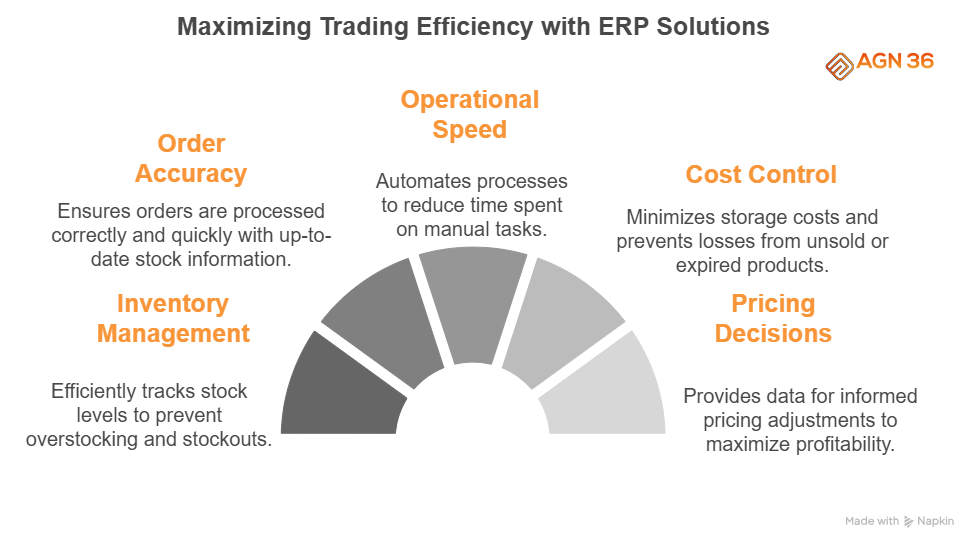
Ways ERP (Enterprise Resource Planning) Improves Profitability
Reduces Overstock and Stock outs: Knowing how much stock is available helps businesses avoid ordering too much or too little.
Improves Order Accuracy: With up-to-date stock information, businesses can process orders quickly without errors.
Speeds up Operations: Automated systems reduce the time taken for manual stock checks, order processing, and reporting.
Controls Storage Costs: Keeping the right amount of stock reduces storage costs and prevents losses due to expired or unsold products.
Better Pricing Decisions: ERP reports show which products are profitable and which are not. Managers can adjust prices or offers based on this data.
Financial Benefits
Higher profit margins
Lower operational costs
Better cash flow management
Faster sales cycle
By using an ERP system to manage inventory online, businesses gain and financial performance, leading to increased profitability.
Cloud-based ERP software has become one of the most popular choices for trading companies looking to improve their inventory management processes. Unlike older systems that need to be installed on office computers, cloud-based ERP systems work online. This makes them easier to use, more flexible, and cost-effective for businesses of all sizes.
Key Benefits of Cloud-Based ERP (Enterprise Resource Planning) for Inventory:
1. Easy Accessibility With cloud ERP, users can access the system from anywhere, whether they’re in the office, at home, or even traveling. As long as there’s an internet connection, the data is available. This makes it easier for sales, warehouse, and management teams to stay connected and work with real-time inventory information.
2. Lower Initial Costs There’s no need to spend a large amount of money on hardware, servers, or IT staff. Cloud ERP systems usually work on a subscription basis, making it a more affordable option for small and medium-sized trading companies.
3. Automatic Updates With cloud-based software, updates are handled automatically by the service provider. This means businesses always have the latest features and security updates without additional cost or effort.
4. Data Security and Backup Data stored on cloud systems is protected with the latest security measures, including encrypted connections and secure servers. Regular backups are taken automatically, reducing the risk of data loss due to hardware failure or human errors.
5. Scalability As trading companies grow, they need systems that can handle more stock, more customers, and more transactions. Cloud ERP systems can easily scale up by adding more users, warehouses, or features without needing a major system overhaul.
6. Integration with Other Tools Cloud ERP systems can easily connect with other software like eCommerce platforms, financial management tools, and CRM systems. This creates a seamless flow of information across the business.
7. Faster Implementation Compared to on-premise systems, cloud ERP can be set up and operational in a much shorter time. There’s no need for heavy installations or complex setups.
Summary of Benefits:
Access from anywhere
Lower upfront costs
Regular updates without extra charges
Safe and secure data storage
Growth-ready scalability
Smooth integration with other tools
Quick setup process
These features make cloud-based ERP software a smart and reliable option for trading companies aiming to manage inventory online with accuracy, speed, and convenience.
Case Study
To understand how ERP helps in real situations, let’s take a look at a trading company case study.
Company Overview: A medium-sized trading company dealing in home appliances had been using traditional spreadsheet methods to track inventory, sales, and orders. With two warehouses and a growing list of customers, it started facing issues like:
Incorrect stock records
No proper batch tracking
Delayed order processing
Overstocking low-demand items
Running out of fast-moving products
Increasing customer complaints
Challenges
Managing stock between two warehouses without clear visibility
Inconsistent stock updates due to manual data entry
Difficulty in predicting product demand and sales trends
Time-consuming monthly stock audits
Solution
The company switched to a cloud-based trading ERP software that offered features like:
Real-time inventory updates
Multi-warehouse stock management
Barcode scanning for product tracking
Automatic stock alerts
Detailed inventory reports
Results
Stock accuracy improved from 65% to 98% within three months
Order processing time reduced by 40%
Customer complaints dropped by 60%
Storage space was optimized by reducing slow-moving stock
Managers could make faster, data-based decisions
Conclusion from the Case:
Streamlined Trading business data that is more helpful for business to go towards scalability . This real-world example shows how shifting to ERP software dramatically improves trading company operations. With better control, visibility, and speed, businesses can grow confidently without losing track of their inventory.
Frequently Asked Questions (FAQs)
The biggest benefit is real-time inventory tracking. Businesses always know what stock they have, where it’s located, and when to reorder.
Yes. Many cloud-based ERP systems are designed specifically for small and medium-sized companies, offering affordable plans and easy setups.
ERP software sends automatic alerts when stock levels drop below a set limit, helping businesses reorder products before they run out
Yes. Cloud-based ERP providers use advanced security technologies, encrypted connections, and regular data backups to keep business data safe.
Cloud-based ERP systems can often be set up within a few days, while on-premise systems may take weeks or months to install and configure.

Saeeda Riaz
Partner at AGN IT Services LLC | Strategic IT Partner of 10+ Enterprises
Saeeda Riaz is a seasoned IT consultant with over 23 years of experience in delivering innovative technology solutions to businesses across various industries. As the driving force behind a leading IT solutions company, she specializes in digital transformation, business automation, and software development. Her strategic vision and hands-on expertise help organizations streamline operations, enhance efficiency, and stay ahead in the digital landscape.
Connect on LinkedInContact us for IT Solutions

